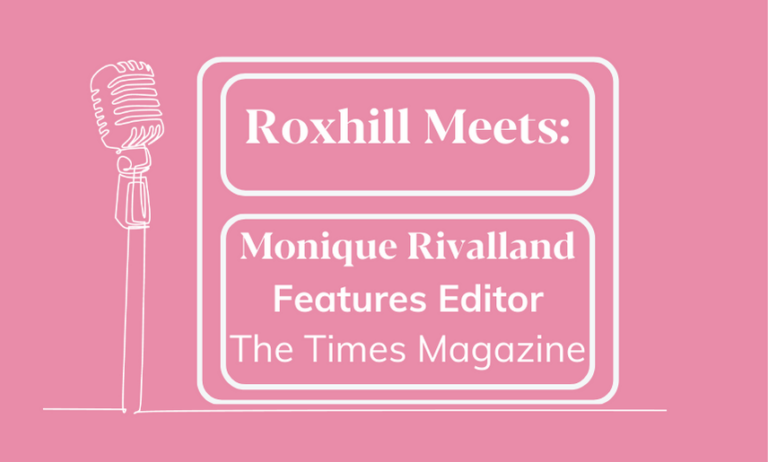Event summary: Top tips for pitching to James Hurley
Last month we held a webinar event with James Hurley, Enterprise Editor at The Times to discuss topics such as climate change, entrepreneurship and his interaction with the communications world.
Read on for the meeting notes.
Times Enterprise Network (TEN)
- Rationale: launched a few months ago, TEN is a digital only space covering entrepreneurs and their issues which will expand to have events and podcasts. It will act as a brand for entrepreneurs
- Run by Richard Tyler and Hannah Prevett (contact them for entrepreneur and profile pitches)
- TEN is a property of both The Times and The Sunday Times where business teams are separate
- Weekly newsletter
- Practical and inspirational content rather than news driven
- Aimed at: Fast growing and medium sized businesses in all sectors
- Leaders of UK businesses with 10-350 employees or sales of £5 million to £250 million
- Audience makes sense commercially
James' evolving role
- More news driven since the launch of TEN
- Still interested in small companies, startups and the policies and challenges that affect them
- Edits Monday’s Working Life: double page spread aimed at SME issues and includes a short business news story
- Big focus on news stories and features for Saturday and Monday editions
How to pitch to James
- He has an idea of content by Monday/Tuesday the previous week
- Sometimes this is later and this can be good if research is discovered later on
- He liaises with Richard Tyler about timings
- Subject line is important due to the volume of emails received. Include concise and digestible bullet points in emails that get to the point
- Include pictures in your pitch, makes the process a lot quicker and easier
- James thinks demand for video will come in time but no requirement at present
- Pitches need to include a story of interest, something you would want to discuss
- Overselling of companies is not as much of an issue as the sheer quantity of emails James receives
- Contact via text on work mobile – James finds it easier to reply
- Pitch stories for weekend editions (Saturday and Monday) early in week as reporters pitch ideas on Wednesdays at midday. Often lacking news stories for these.
How to pitch to the UK business desks
At Roxhill, we speak to top editors and journalists every day to feed you the best information to level up your pitches. Make note of the business pitching hours for each of the key business desks, and more. Find out:
- Their key areas of interest
- When to include surveys or research in pitches
- Top tips on how to secure coverage
Presented in a handy eBook to give you the insight you need to get that all-important feature. Click the button below to download it for free:
Digital strategy
- Changed a lot since the pandemic and publishing strategy has been modified because of the decline in print
- The Times had been running an additions based strategy, only pushing stories at key points during the day. This has been abandoned and stories are now published at any time during day
- Means that lead times are less important because publishing times are more flexible
- Editors are creating lists of stories for each day and publish strategically with no hard deadlines
- Biggest change being felt by section editors and those who manage production processes because the structure to the day has been overhauled
- No huge change for reporters, other than deadlines have moved up and things happen more often and frequently
Big themes
- Supply chain issues – HGV drivers and shipping
- Inflation
- Post -pandemic schemes coming to an end e.g. furlough
- Wholesale gas prices
- Climate change – hasn’t been covered enough
- Staff shortages
- Interest in Venture Capital however this is more of a focus for the financial team
- Plenty of optimism for the future, despite potentially rocky for the next few months/year ahead. Many small businesses are thriving
Opeds
- General rule is that they don’t do them unless they are a well thought through and structured argument, which they rarely are.
Profiles
- Try not to overdo these
- TEN – has a lot of set pieces that are a more interesting way to do profiles e.g. What I Learn (personal stories about an experience that provide knowledge and insight)
Climate change
- Increasingly important
- Big companies are already taking steps to reduce emissions
- However small companies are behind. The government needs to start initiatives to help smaller companies reduce emissions in order to achieve 2030 targets
Entrepreneurship taught at schools
- Philosophical question – can you teach it?
- Definitely think that core financial skills should be taught at school e.g. basics of looking at a balance sheet and understanding how businesses work
- Understanding personal finance is so important
- Surprising some of the things people fall for due to lack of awareness
Case studies
- Very important throughout section
- Provide first hand accounts of what they’re experiencing and are used to bring news items to life
- Personal relationships with business owners is important to gain insight and personal opinions
Diversity
- Geographical diversity is important, they do not want to be criticised for only featuring companies in London
- Increase in coverage of businesses run by under-represented groups
- Their job to showcase successful companies and also the issues companies may be facing
- Stories are mainly UK focused, however if an international story is relevant to the UK audience then it will be featured
Surveys
- They get too many of them, but do cover them (should do less)
- Similar to opeds – useless and not interesting but there are exceptions and if there is an important point being illustrated they they will feature it
Research
- Can be helpful to come back to when relevant
- Government spending data, for example, may not be any use on a day to day basis but is important if something related comes up in news agenda
- VC data is also useful but not going to keep running commentary on a day to day basis
SME coverage
- If you stick it at the back of the newspaper or at the bottom of the website, it won’t be read
- It’s about how you do it and how you show readers what you’re doing
- Pay-walls will impact reach and visibility













